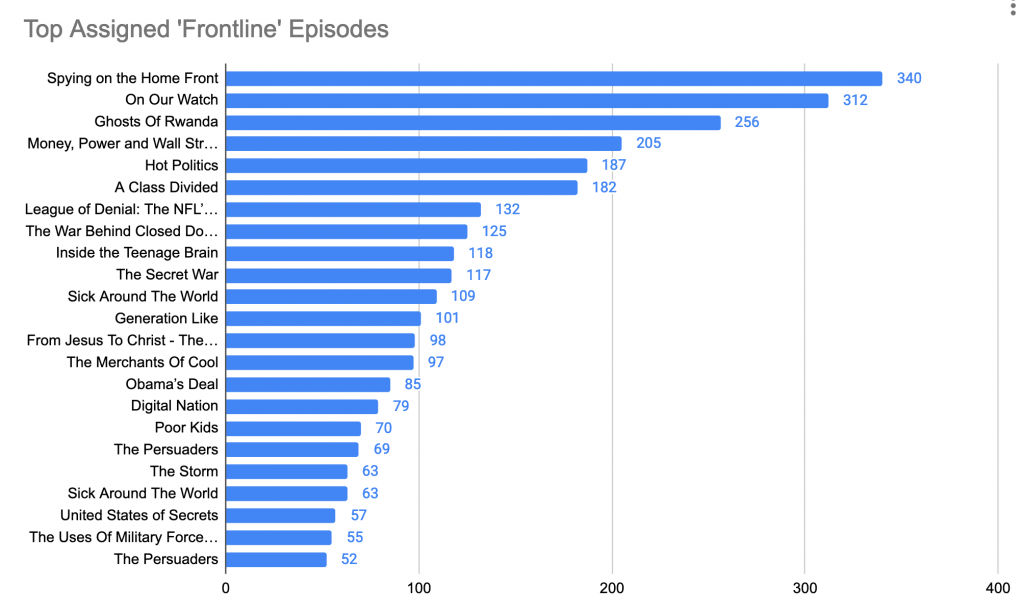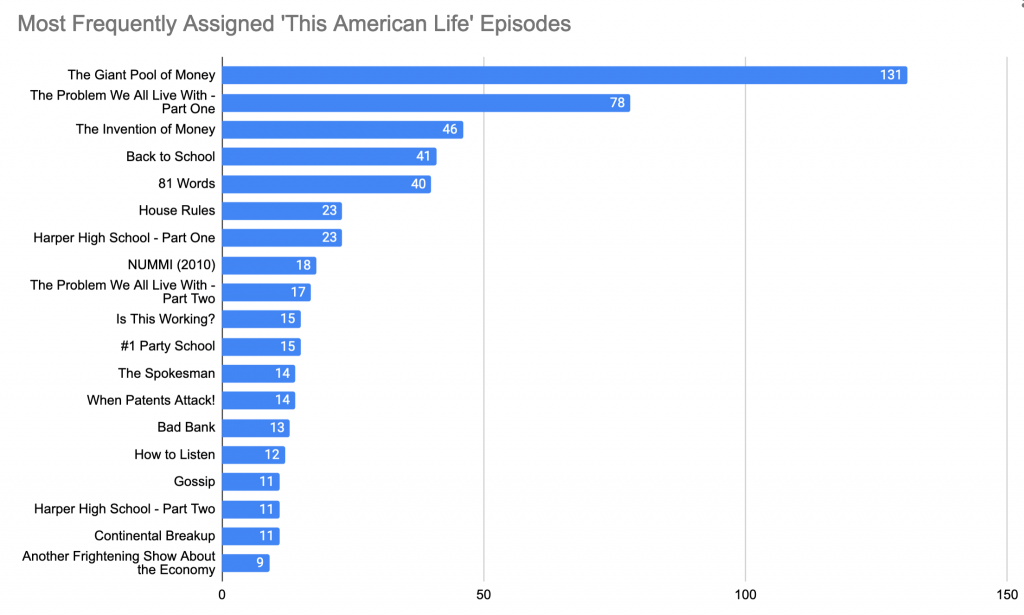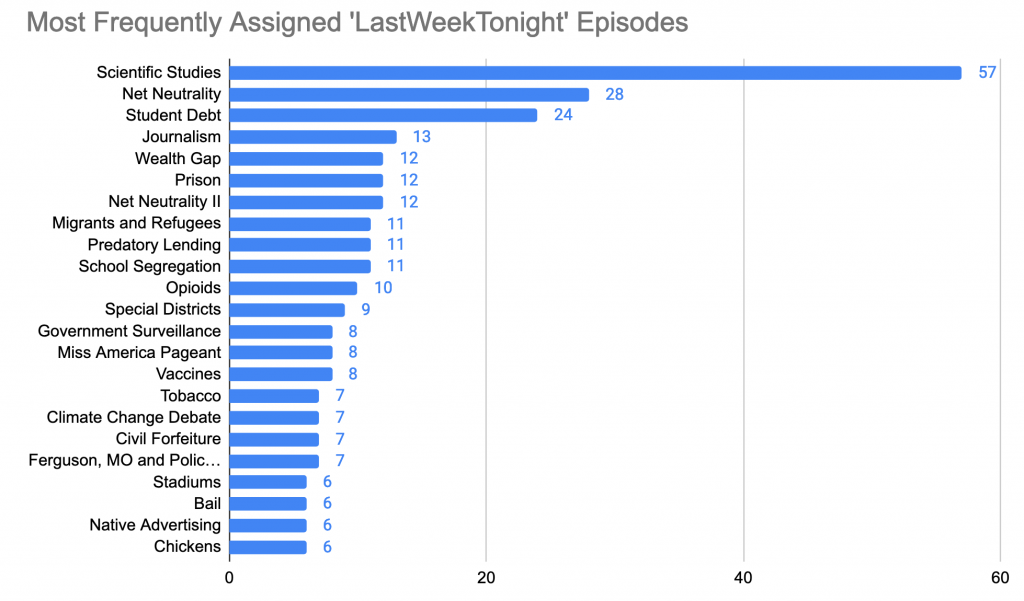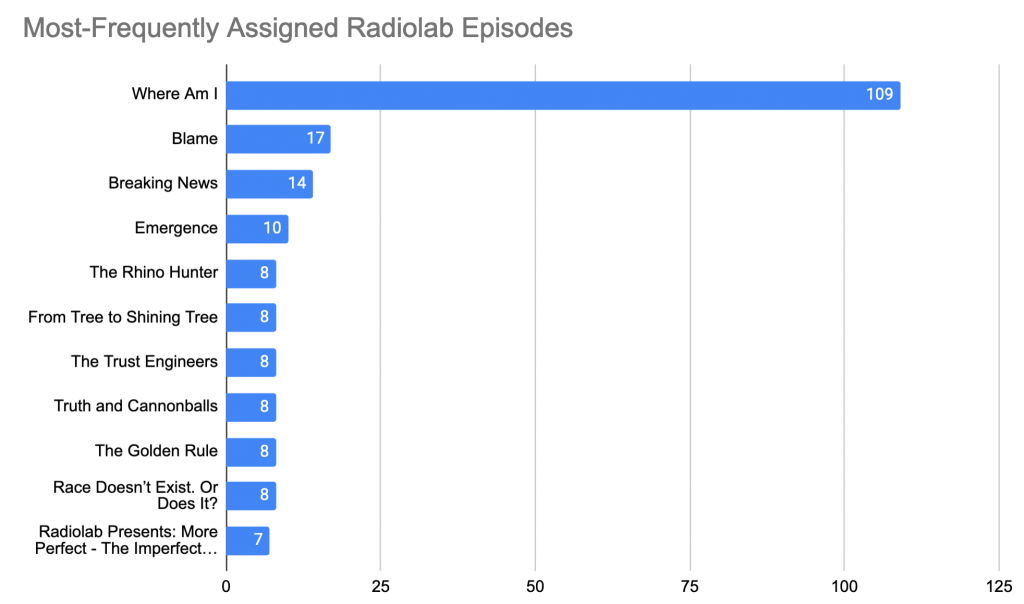Recently we’ve been exploring the place of ‘non-traditional’ materials in the curriculum: newspaper and magazine articles, TV and radio episodes, podcasts, blogs, and so on. Such materials are, of course, both very common on syllabi and largely invisible to traditional approaches to curricular design. They have been invisible in Open Syllabus, too, which relies on library catalogs to describe the range of titles that we can search for in the syllabus collection. Over the summer we decided to address this by extracting URLs in the collection, walking them back to their sources, and filtering for work used in instructional contexts. We now have a very interesting catalog of non-traditional classroom materials.
This is a big topic that will probably be the subject of several posts, but let’s look at some fun stuff first: TV/radio shows and podcasts that do serious long-form exploration of topics. Many of these are assigned with some frequency on syllabi — though we suspect more often as supplements to conventional assignments than as primary materials. It would be interesting to test this via a deeper dive into the documents. In any case, there is some standout programming that has a strong presence in the classroom. For example, Frontline:

“Spying on the Home Front,” “On Our Watch” (which is about the genocide in Darfur), and “Ghosts of Rwanda” play central roles in the teaching of their respective topics. For comparison, the other major Rwanda titles — Prunier’s The Rwanda Crisis, Powers’ Bystanders to Genocide, and Kuperman’s Rwanda in Retrospect–are assigned 290, 237, and 201 times respectively.
“This American Life” episodes are also widely assigned. ‘The Giant Pool of Money‘ won a Peabody award and plays a significant role in teaching the financial crisis. ‘The Problem We all Live With‘ is about the fate of school desegregation.

LastWeekTonight has some frequently assigned episodes–notably one on bad journalistic coverage of scientific studies.

Radiolab has one strong performer: an episode on the mind-body relationship called Where Am I.

There is more to explore and it will be a while, yet, before this data is integrated into the larger OS dataset. Next stop: magazines and newspapers.